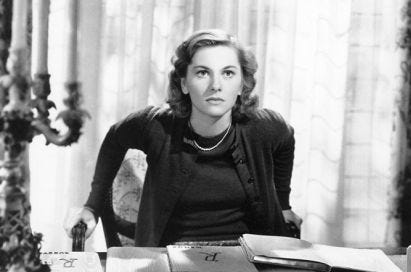Daphne du Maurier: The Woman Behind the Writing
An exploration of who Daphne du Maurier was, as well as who and what influenced her writing.
Hey there, book club!
I hope everyone has had a great week. I wanted to give you something to read over the weekend about Daphne du Maurier, a mini biography of sorts.
Don’t forget, the book club will be meeting to discuss Jamaica Inn on Sunday 1st December (7 days time!) in the Substack chat. 7pm GMT/2pm EST.
I hope you’re all enjoying/have enjoyed Jamaica Inn as much as I have. Any issues, please let me know in the comments or via the chat!
I’ve also got a post about the real Jamaica Inn coming to you later next week. I’ll be sharing the book club poll for December’s novel on Friday, and announcing the winner on Monday after our discussion ends. As we will only have three weeks to read before Christmas, it means we can get going on that novel as soon as possible.
It will be a shorter novel too - so don’t worry about having to read anything too long before Christmas! I asked about suggestions for December’s book in the chat, so please feel free to share any ideas there!
Who was Daphne du Maurier?
Born in 1907 in London, Daphne du Maurier grew up surrounded by creatives. Both her mother and father were actors and her grandfather, George du Maurier, was a novelist and cartoonist. Her siblings grew up to become writers and actors themselves. She was even a cousin of the Llewelyn Davies boys, who were J. M. Barrie's inspiration for Peter Pan!
Daphne was the second of three sisters and enjoyed a privileged upbringing in Hampstead, London. It was the holiday home Ferryside that the family purchased in Cornwall that became her favourite place, and led to an obsession with the English county that would form the setting for so much of her writing.
She married Frederick Browning in 1932 and the pair had three children as they moved from Cornish home to Cornish home. After leaving Ferryside, she moved to Menabilly (which you may know of as Manderley from her novel ‘Rebecca’), while later she moved to Kilmarth in St Austell (the inspiration for House on the Strand).
She had an undeniably privileged life, born into a wealthy family and as a married woman continued to have staff to run her home and look after her children. Of course, given the achievements of her many novels, nobody could blame her for living the comforted life that comes with writing success, as it was this that provided the main income for her husband and children.
A love of the Brontë family
Daphne was deeply inspired by the Brontë family, to begin with this was particularly by Emily’s novels Wuthering Heights and Jane Eyre (which in turn inspired elements of both Jamaica Inn and Rebecca). She discovered these novels as a young girl, and the similarity between her own writing, themes and characters is obvious to those who have read both authors. A poem by Emily was even the inspiration for Daphne’s first novel, The Loving Spirit.



